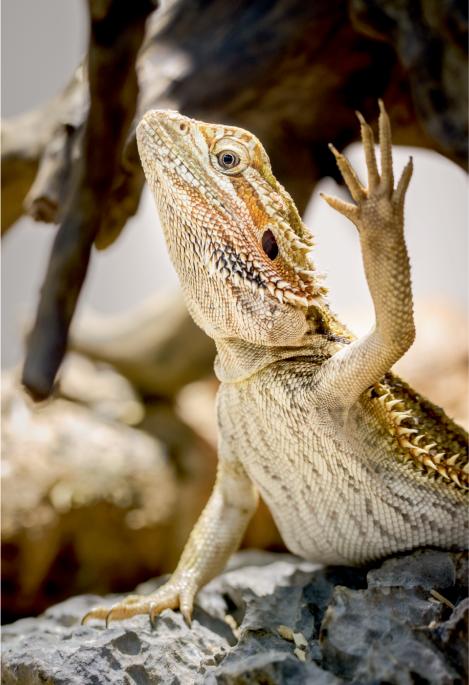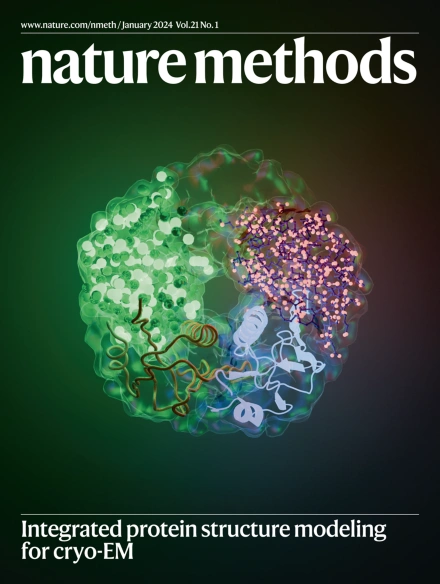胡须龙 Pogona vitticeps
IF 36.1
1区 生物学
Q1 BIOCHEMICAL RESEARCH METHODS
引用次数: 0
摘要
澳大利亚胡须龙因其独特的尖鳞 "胡须 "而得名,这种鳞片在社交和防御时会变黑和扩大。这种蜥蜴已成为研究羊膜动物大脑神经元和神经回路(包括睡眠时)的进化、功能和动态的爬行动物模型系统。本文章由计算机程序翻译,如有差异,请以英文原文为准。

The bearded dragon Pogona vitticeps
The Australian bearded dragon is so called for its distinctive ‘beard’ of spiky scales that can darken and expand during social and defensive displays. This lizard has become a reptilian model system to study the evolution, function and dynamics of neurons and neural circuits (including during sleep) in the amniote brain.
求助全文
通过发布文献求助,成功后即可免费获取论文全文。
去求助
来源期刊

Nature Methods
生物-生化研究方法
CiteScore
58.70
自引率
1.70%
发文量
326
审稿时长
1 months
期刊介绍:
Nature Methods is a monthly journal that focuses on publishing innovative methods and substantial enhancements to fundamental life sciences research techniques. Geared towards a diverse, interdisciplinary readership of researchers in academia and industry engaged in laboratory work, the journal offers new tools for research and emphasizes the immediate practical significance of the featured work. It publishes primary research papers and reviews recent technical and methodological advancements, with a particular interest in primary methods papers relevant to the biological and biomedical sciences. This includes methods rooted in chemistry with practical applications for studying biological problems.
 求助内容:
求助内容: 应助结果提醒方式:
应助结果提醒方式:


